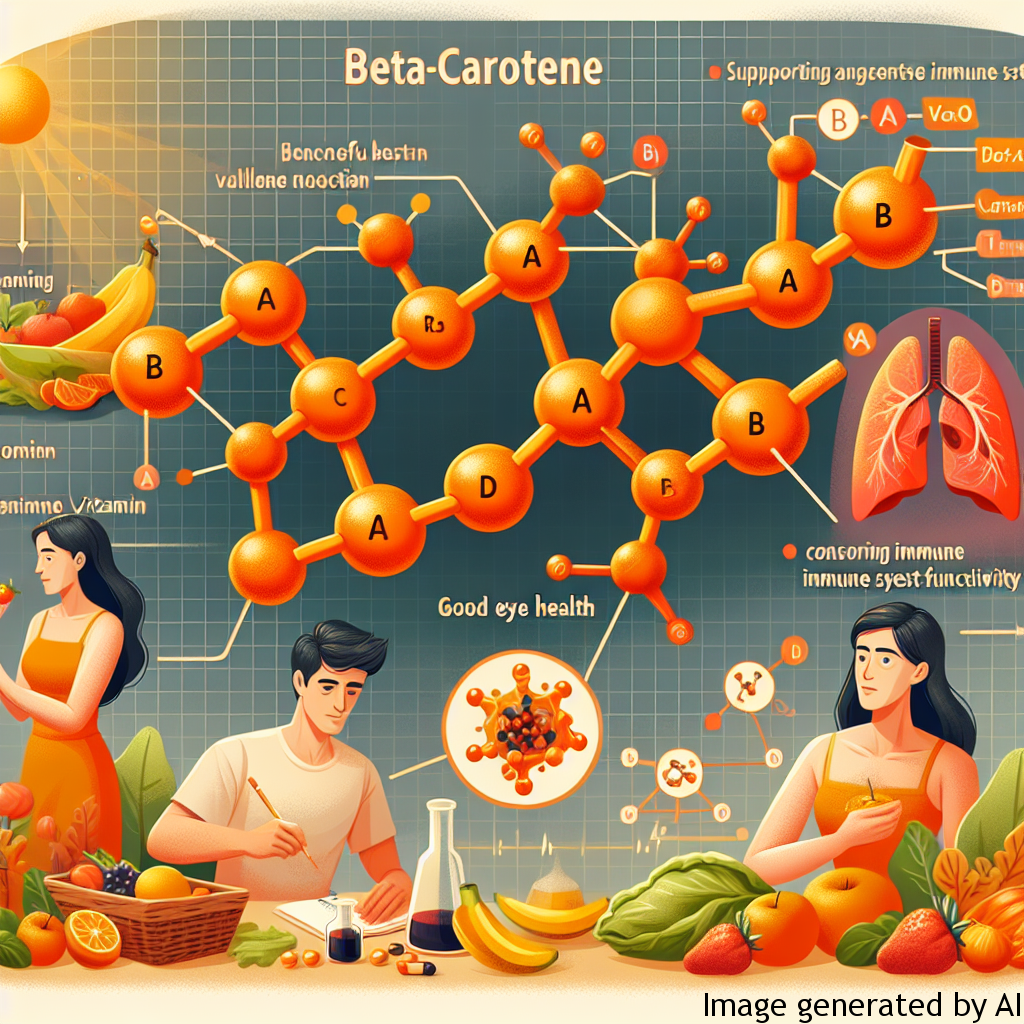Introduction
Beta-carotene is a powerful antioxidant that is classified as a carotenoid. It gives fruits and vegetables their recognizable orange and yellow hues. But, this pigment is not just critical for the colour of your food; it is important for your health as well. Beta-carotene converts into vitamin A in our bodies, and it helps maintain healthy skin, boosts eye health, and supports our immune system.
What is Beta-Carotene?
Beta-carotene is a natural compound found primarily in fruits and vegetables. It is what gives them their vibrant yellow, orange, and red colours. Beta-carotene is an antioxidant which fights against free radicals in our bodies. Free radicals can cause damage to cells, leading to chronic diseases and aging. Foods high in beta-carotene include carrots, sweet potatoes, spinach, and kale.
Conversion into Vitamin A
Once ingested, our bodies convert beta-carotene into vitamin A. Vitamin A is a crucial nutrient for maintaining a healthy immune system, eye health, cell growth, and reproductive health. An adequate intake of beta-carotene and thus vitamin A can prevent deficiencies, which can lead to serious health problems.
An Antioxidant
As a potent antioxidant, beta-carotene helps to protect our cells from damage by free radicals. Antioxidants neutralize these harmful molecules, thus reducing inflammation and the risk of chronic diseases such as heart disease and cancer. Present in most fruits and vegetables, a diet rich in beta-carotene can be an effective way to maintain overall health.
Why is Beta-Carotene Important?
Consuming an adequate amount of beta-carotene in your diet provides several health benefits. As discussed, it aids in maintaining a healthy immune system, prevents eye conditions like age-related macular degeneration, and reduces the risk of certain cancers and heart disease. Moreover, it has been linked with improved cognitive function and lung health.
Cardiovascular Health
The consumption of beta-carotene has been linked with a reduced risk of heart disease. This is primarily because beta-carotene is an antioxidant and it can help prevent oxidative stress, a leading cause of heart disease.
Cognitive Health
There is evidence to suggest that beta-carotene may help delay cognitive decline. A diet high in beta-carotene along with other antioxidants has been associated with improved memory and cognitive function.
Tips for Incorporating Beta-Carotene into Your Diet
Here are some easy ways to ensure an adequate intake of beta-carotene in your diet:
- Include at least one high in beta-carotene food in your diet daily, such as sweet potatoes, carrots, kale, spinach, or winter squash.
- Consume these foods in their natural form. Cooking them may lose some of their nutritional value.
- Combine these foods with a source of fat. Beta-carotene is fat-soluble, which means it is better absorbed into the bloodstream when eaten with fat.
Conclusion
Beta-carotene plays a pivotal role in our health, providing a range of benefits from improved eye health, to a boosted immune system, to better cognitive function. Incorporating foods rich in beta-carotene in your diet is an easy and effective way to improve your overall health.

